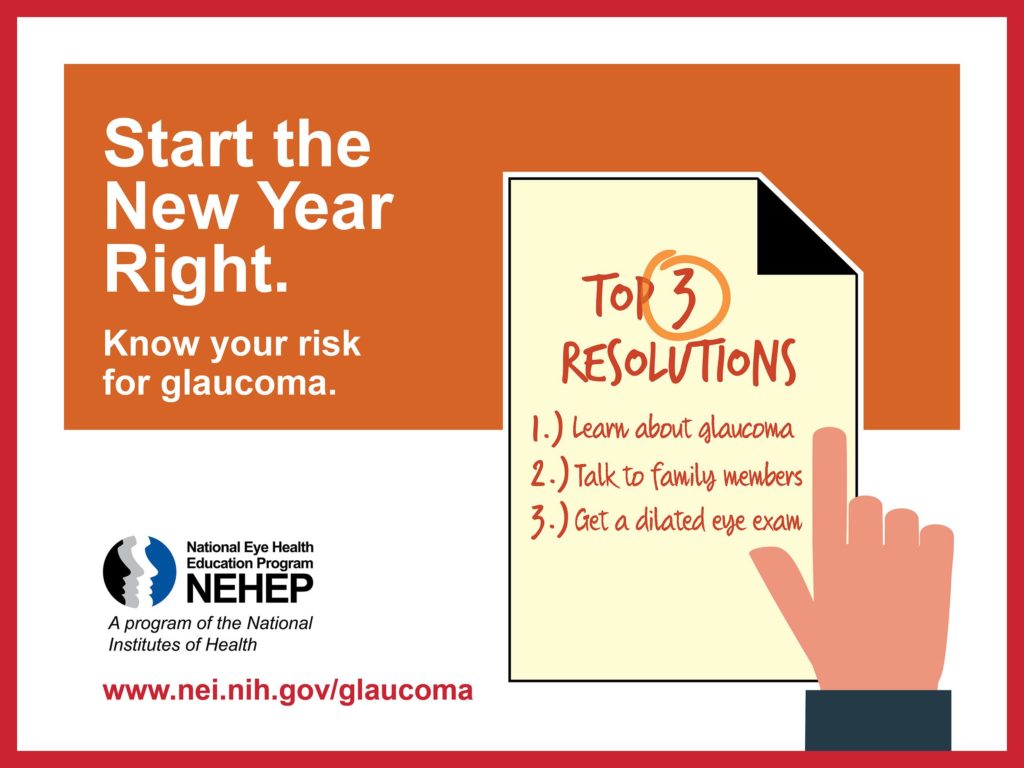According to the National Eye Institute (NEI), “Glaucoma is a leading cause of vision loss and blindness in the United States. Many people don’t know that glaucoma has no symptoms in its early stages.”
NEI further states that “the only way to find out if you have glaucoma is to get a comprehensive dilated eye exam. There’s no cure for glaucoma, but early treatment can often stop the damage and protect your vision.”
Risk Factors

There are several risk factors associated with glaucoma. According to NEI, anyone can get glaucoma, but those at higher risk include:
- African Americans over age 40
- Everyone over age 60, especially Hispanics/Latinos
- People with a family history of the disease
What If I Am Diagnosed with Glaucoma?
VisionAware offers a range of recommendations for dealing with vision loss from glaucoma. Here are a few to get you started:
- Consider having a low vision exam. A low-vision specialist can determine what products and technology will best suit your vision.
- Consider vision rehabilitation services to help you learn how to manage everyday tasks more efficiently.
- Train with an orientation and mobility specialist to learn how to use a long white cane if you are having problems detecting curbs or steps.
- Because glaucoma affects your peripheral (or side) vision, remember to scan your environment to ensure you are not missing things. This is critical because the brain often fills in blind spots in the visual field, and you may not be aware of loss of peripheral vision.
Advice from People Who Have Successfully Coped with Loss of Vision from Glaucoma
- Jasmine Polite talks about why people with glaucoma should learn braille. Since January is also braille awareness month her story is particularly relevant if you are considering learning braille. In her words, “Simply put, learning braille increases your options in life.”
- Steph McCoy, former VisionAware peer advisor, discusses her journey to discovering her glaucoma. She has this advice for people who are newly diagnosed, “What I’ve found through my experience with glaucoma is that once it’s diagnosed it becomes a life-long maintenance program to protect your remaining vision. …you really owe it to yourself to take good care of your vision.”
- Joe Lovett, film producer, felt so strongly about losing his vision to glaucoma that he produced a documentary, Going Blind, to educate people and their doctors about the importance of vision rehabilitation and early diagnosis. He said, “The biggest concern I have is that not enough people are being referred for vision rehabilitation services.”
- Stuart Carduner likewise felt so passionate about his diagnosis of glaucoma that he decided to work on empowering people with vision loss to become active partners in their treatment and encourage doctors to share resources. He wrote a patient guide to glaucoma for VisionAware that glaucoma specialists have vetted. He says, “If you have received a glaucoma diagnosis, the most important thing is to remain proactive about your care.”